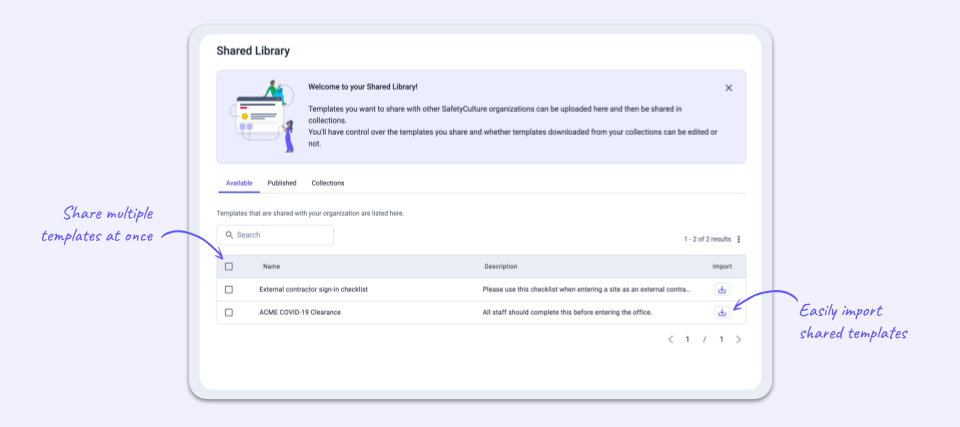In this release, you can now:
- Create a centralized library of templates and template collections, and easily share them with other organizations you frequently work with.
What you’ll love about this new functionality
Businesses rely on cross-organizational templates to ensure data consistency and promote best practices. However, the challenge arises when these templates can only be shared by making them public, risking the confidentiality of sensitive information. This lack of secure sharing also leads to inefficiencies as users must search multiple sources to find the templates they need.
Introducing the Shared Library – a simple and secure way to share templates with any organization in SafetyCulture. Now, you can easily create a centralized template hub from a single location. Get peace of mind by safely sharing templates between organizations without making them publicly available, helping safeguard confidential information and streamline collaboration.
With the Shared Library, you can:
- Capture consistent data: Collaborate more effectively with partners, suppliers, and contractors, ensuring consistent data capture across organizations.
- Standardize best practices: Influence the uptake of best practices and ensure cross-organizational compliance with industry standards.
Important note: The Shared Library is distinct from our Public Library, which is designed for public access to templates.
How to get started with the new release
To learn more about the Shared Library and how to use it, read our support article here.
Alternatively, if you need additional help, reach out to our Support Team or your dedicated Customer Success Manager, and they’ll be happy to assist.
